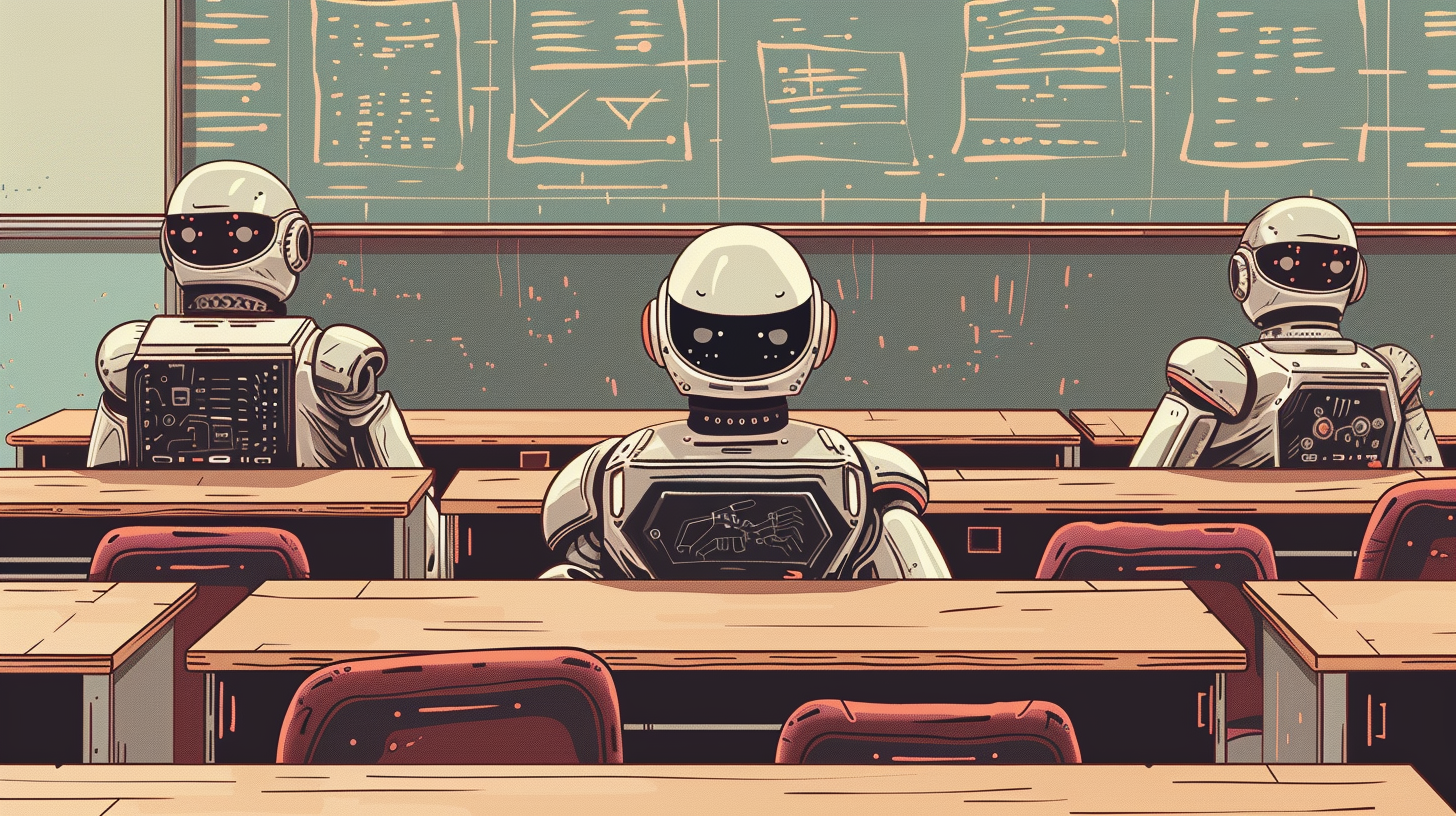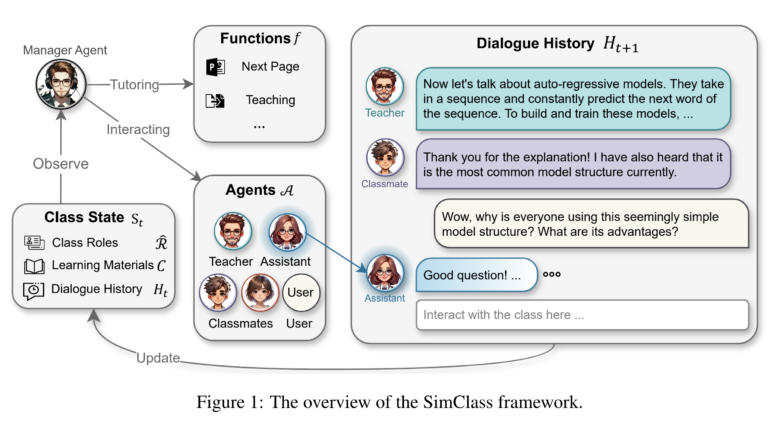SimClass uses GPT-4 to emulate teachers and classmates for better online learning

A new study shows how AI-powered agents can mimic traditional classroom interactions to enhance the student learning experience.
Researchers at Tsinghua University in Beijing have developed an AI system that simulates a virtual classroom with multiple agents, mimicking traditional classroom interactions and improving the learning experience for students.
The system, called SimClass, uses GPT-4 to emulate various roles such as teachers, assistants, and classmates. The researchers tested SimClass with 48 students in two different courses to examine the system's ability to simulate real teacher-student interactions, whether students can effectively learn in this environment, and what classroom behaviors emerge spontaneously.

Interactivity and AI classmates help with learning
The Flanders Interaction Analysis System, a tool for examining verbal behavior in traditional classrooms, was used to analyze the interactions. The results show that SimClass exhibits similar behavioral and interaction patterns to traditional classrooms.
The learning experience of the participants was evaluated using the Community of Inquiry theory. The presence of multiple AI agents was found to increase user engagement and presence compared to systems without interaction or only teacher agents. Moreover, the students positively evaluated their experiences with SimClass, stating that the system helped them better understand concepts and feel more involved in the learning process. The presence of AI classmates proved particularly valuable, contributing to a more lively and interactive learning environment.
The researchers also observed emergent behavior from the AI agents. For example, the agents collaborated to stimulate deeper discussions or provide emotional support to struggling students.
Pioneering AI multi-agent systems in the virtual classroom
Such an AI-powered classroom could potentially be used for personalized learning, teacher training, or as a supplement to in-person instruction in the future. However, the researchers emphasize that careful evaluation is necessary before practical implementation to exclude issues such as hallucinations or misinformation from the AI models, indicating the need for better models.
The team hopes their work will pioneer the study of AI multi-agent systems in virtual classrooms. The interaction data collected will soon be made available for further research.
AI News Without the Hype – Curated by Humans
As a THE DECODER subscriber, you get ad-free reading, our weekly AI newsletter, the exclusive "AI Radar" Frontier Report 6× per year, access to comments, and our complete archive.
Subscribe nowAI news without the hype
Curated by humans.
- Over 20 percent launch discount.
- Read without distractions – no Google ads.
- Access to comments and community discussions.
- Weekly AI newsletter.
- 6 times a year: “AI Radar” – deep dives on key AI topics.
- Up to 25 % off on KI Pro online events.
- Access to our full ten-year archive.
- Get the latest AI news from The Decoder.